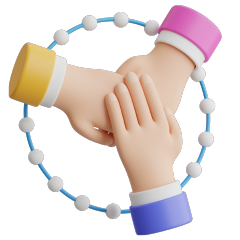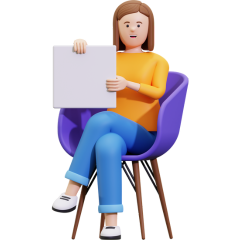Words on the page, but out of reach: A closer look at print disability

For someone with a print disability, everyday tasks that involve reading can become a bit challenging. When content is inaccessible, people may miss opportunities, feel isolated or struggle to maintain independence.
Table of Contents
Reading is something many of us do without thinking. Browsing a menu, checking a bank statement or reading a newspaper. Yet for more than 18% of Australian adults, reading standard print materials is not so simple.
This group includes people with what is known as a print disability. Despite advances in digital publishing and public services, many people with print disabilities still find it difficult to access the information they need in formats they can use. This challenge affects not only their ability to learn and work, but also their capacity to participate fully in everyday life.
What is print disability?
A print disability refers to a condition that makes reading standard printed text difficult or impossible. This can include people who
- are blind or have low vision
- those with dyslexia or other learning difficulties
- individuals with physical impairments that affect their ability to hold or flip through a book
- and those with brain injuries or cognitive impairments that affect memory or concentration
The issue is not related to literacy or intelligence. It is a matter of access—having the right format or tools to interact with written information.
Daily life with a print disability
For someone with a print disability, everyday tasks that involve reading can become a bit challenging. Accessing school updates, completing forms or even choosing a book from the library may require extra steps or assistance.
If the materials are only available in small print, inaccessible file formats or unlabelled digital layouts, a person with a print disability may be excluded from important information.

Reading is not just about enjoyment. It is a crucial part of learning, decision-making and staying informed. When content is inaccessible, people may miss opportunities, feel isolated or struggle to maintain independence.
Supports available for people with print disability
Support for people with print disabilities does exist, although it is not always well-known or consistently delivered.
The National Disability Insurance Scheme (NDIS) can provide funding for technology and services that support reading under Capital Supports – Assistive Technology. This might include screen readers, Braille devices, audiobooks or help converting documents into accessible formats.
However, not everyone with a print disability qualifies for the NDIS so you will need to check your eligibility or coordinate with a local area coordinator to see if you are qualified for support.
The government has a Print Disability Services Program (PDSP) that supports organisations to produce print material in alternative formats for people with print disability.
Organisations like Vision Australia and Visability provide reading materials in alternate formats such as large print, braille, audio and electronic text. They also help people with print disability learn to use assistive technologies that can improve access to reading and communication.
Are libraries print disability-friendly?
Public libraries are an important source of free reading and learning materials, but a recent study by researchers from the University of South Australia and the University of Sydney shows that many libraries are not fully equipped to support people with print disabilities.
The study found several key issues, including:
- uncertainty among library staff about whether their eBooks and audiobooks are accessible
- a lack of staff training on how to assist patrons with print disabilities
- Library websites and catalogues that are not compatible with screen readers or other assistive technologies
- limited public awareness of available accessible resources.
- inconsistent funding and policy approaches between library networks
The researchers emphasised that access to reading and information is a fundamental right, and highlighted the need for stronger engagement with people with print disabilities and better promotion of the services already in place.
Why accessibility matters
Research has found that more than four in five people with print rate reading for pleasure as ‘very important’ to their lives. Reading supports literacy, general knowledge, wellbeing and social participation. When content is accessible, people are more likely to feel informed, confident and included.
Accessible communication does not only help those with disabilities. It also benefits people who are ageing, recovering from injury or using different devices and technologies. In many cases, accessibility leads to better design and a more inclusive experience for everyone.
A more inclusive reading culture
Australia has a strong tradition of supporting community access through its libraries, education system and public services. However, as the population grows and technology evolves, there is a need to ensure that accessibility is not an afterthought.
Reading connects us to stories, ideas and each other. For people with print disabilities, having access to reading in a way that works for them is not a luxury but a step towards equality.
Creating an inclusive reading culture benefits everyone. It reflects our values, strengthens our communities and ensures that every voice has the chance to be heard.
How Leora supports people with print disabilities
At Leora, we offer disability support services that are tailored to each person’s needs, including support for people with print disability due to blindness, low vision or cognitive impairments, among others.
Our support workers can help with personal care, social and community access, cleaning, or setting up assistive technology. Whether it’s using a screen reader, helping with large-print materials or just being there to go through paperwork together, we’re here to make things easier.
Access shouldn’t be a barrier, and improving it takes more than just tools. It takes real support from people who care and know how to help in ways that work for you.
If you or someone you care for needs a hand, get in touch with our team to find out how we can help.





